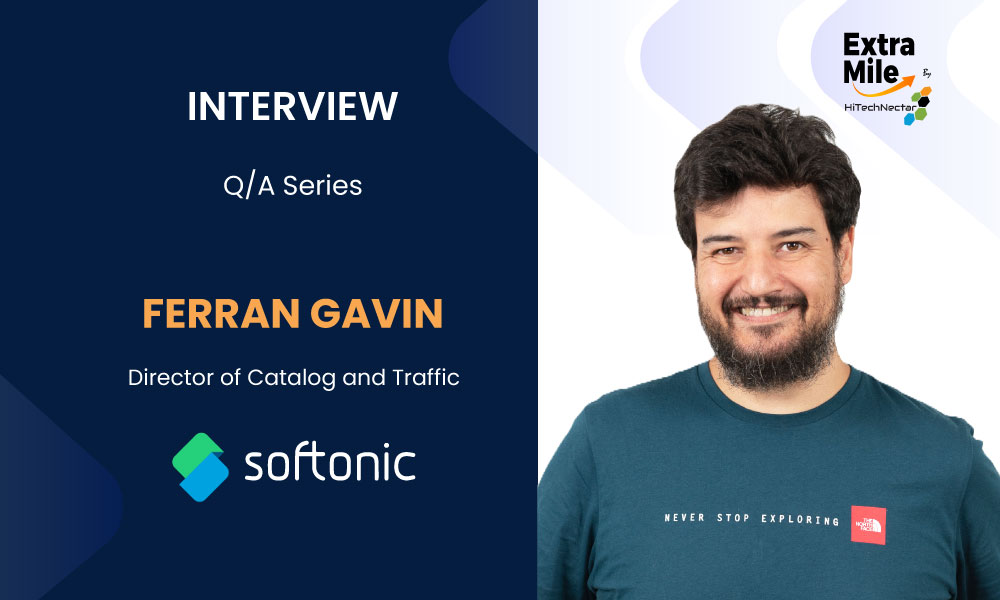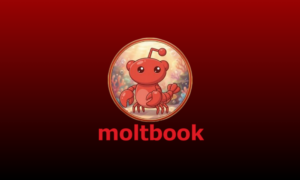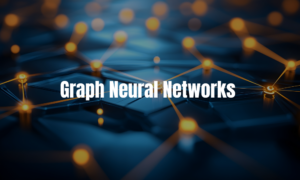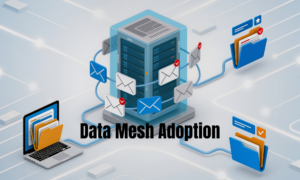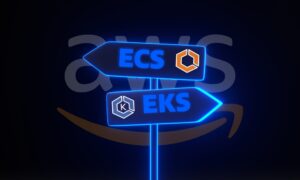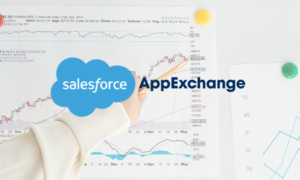Welcome to the newest edition of ExtraMile by HiTechNectar, where we connect with industry leaders to share their insights, stories, expertise, and what they have learned along the way.
For today’s conversation, we are pleased to introduce our guest Ferran Gavin, Director of Catalog and Traffic at Softonic, one of the leading players in secure software distribution.
Ferran has worked for more than ten years in the world of SEO and digital traffic. Having been a self-taught consultant at first, he became an indispensable person in the Softonic team, leading the SEO and content management for the company.
In this engaging conversation, Ferran presents his everyday responsibilities, the importance of security in software distribution, and how he faces the continuous transformation of search algorithms.
Join us as we explore Ferran’s path, how he overcomes challenges, and what creative measures Softonic takes to ensure user security while ensuring a seamless experience. Let’s get started!
Hi Ferran! We are thrilled to have you on board!
Q1. Walk us through your regular routine at Softonic as the Director of Catalog and Traffic of the firm. What responsibilities do you address daily?
Ans. I lead a team of three SEO specialists and three content professionals. My primary role is to guide and support them by aligning their roadmaps, refining proposals, and removing any roadblocks within the organisation. As the person responsible for traffic, I identify opportunities and challenges in the digital landscape, report traffic performance to the executive team, and serve as the primary stakeholder for any project that impacts traffic acquisition for the company.
Q2. Staying determined in today’s chaotic commercial sector is important. How do you stay focused and balance your personal-professional life?
Ans. One key factor in maintaining this balance is trusting my team. I’ve always been a strong advocate for giving my team members flexibility and ownership over their work, ensuring they have clear goals while allowing them the freedom to execute.
At the same time, I’ve had the pleasure of mentoring and promoting excellent SEOs, helping them grow and become even better at their jobs. As I’ve grown in my career, I’ve transitioned from being purely focused on SEO to becoming more people-oriented, which has been both challenging and rewarding.
Q3. Security is a critical factor in software distribution. What measures does Softonic implement to protect users from malware, fraud, and other security threats while maintaining a seamless user experience?
Ans. We take security very seriously at Softonic, and our approach relies on four key pillars:
- Trusting the Source – We ensure that we only upload software from trusted developers and verified sources. This trust is built through direct relationships with developers or rigorous methods that verify files haven’t been modified or corrupted.
- Strict Compliance – Our dedicated compliance team defines clear policies on what types of products we can and cannot host. This team also handles security concerns, DMCA requests, and policy violations, working closely with Google’s Policy team to ensure we stay on the right track.
- Antivirus Scans – Every file and destination URL added to our catalogue is scanned multiple times by antivirus engines. Since some threats may not be detected immediately, ongoing scans help maximise our chances of identifying and removing deceptive content over time.
- Continuous Feedback – Even with clean files and verified products, our team of editors and content managers actively test the most popular software and provide feedback to ensure quality and security remain top priorities.
Combining these measures creates a safer environment for users while maintaining a seamless experience.
Q4. With your extensive experience in SEO, how have search algorithms and ranking factors evolved over the years? What key changes have had the most impact on search visibility?
Ans. The most significant shift I’ve seen is how SEO has evolved from being heavily technical, where technical optimisations carried massive weight a decade ago, to a more holistic approach that integrates product, user behaviour, and search intent.
With the rise of advanced techniques and AI-driven algorithms, traditional SEO strategies are no longer as effective. Today, success depends on delivering a unique, high-quality experience that genuinely aligns with your audience’s needs rather than just optimising for rankings.
Q5. Google’s recent search updates prioritize authenticity and value. How do you see these changes affecting businesses and SEO strategies?
Ans. Right now, Google is grappling with the massive influx of AI-generated content. With content production cheaper than ever, Google is looking for ways to prioritise trustworthy sites. This explains why platforms like Reddit and Quora have seen explosive growth, appearing for nearly any query.
That said, this is a temporary patch rather than a long-term shift. In my opinion, AI will fundamentally change how SEO works and determine which types of websites will thrive in this new era.
I believe pure informational content is on its way out. AI can generate it quickly and over time, LLMs will provide better responses than traditional search engines and websites. Businesses that want to stay relevant need to rethink their approach.
Here are the key strategies I see as viable in the AI-driven landscape:
- Transactional or Navigational Sites – Websites that offer something unique, such as e-commerce platforms, strong brands, or service providers, will remain valuable because they provide a distinct transaction or experience AI can’t replace.
- Content AI Can’t Replicate – While AI excels at aggregating information, it still struggles with creating complex products or interactive tools. Websites with unique, non-summarizable value—such as advanced calculators or highly specialised tools—will have an edge.
- Communities & User-Generated Content – Google’s boost to sites like Reddit is a natural response to the AI content flood. Human-driven, community-backed content will become more valuable if trust in mass-produced content declines. Sites that foster real discussions and recommendations will likely perform well.
- High-Expertise Content – Expertise and deep research will become critical ranking factors. In B2B decision-making, where trust and credibility matter, users are more likely to rely on peer insights and third-party recommendations than AI-generated answers. No company is going to commit to an enterprise software license purely based on an AI agent’s suggestion.
In the long run, all SEO strategies and roadmaps should account for AI disruption risks alongside classic SEO metrics like search volume and ranking potential. The future of SEO won’t just be about optimising for algorithms—it will be about proving value in ways AI can’t easily replicate.
6. Is generative AI a challenge to traditional search methods? How does it impact the way users find and consume information today?
Ans. For now, traditional search engines will remain highly relevant for real-time news, e-commerce, and navigational queries—areas where AI doesn’t yet provide significant added value. Google and Bing continue to excel in these categories, making them the go-to platforms for these types of searches.
However, AI will have a massive impact on informational queries. Large Language Models (LLMs) can generate responses for ultra-long-tail questions that traditional search engines struggle to address. This opens up entirely new possibilities where AI holds a clear advantage.
Beyond improving existing search methods, AI is likely to create entirely new types of queries. We’ve been conditioned to search in a way that aligns with Google’s limitations. But as LLMs become mainstream, users will discover new ways to search, interact, and find information, unlocking new trends and use cases that weren’t possible before.
In particular, ultra-long-tail queries and AI-powered efficiency hacks are likely to grow significantly, helping users get highly specific, contextual answers that traditional search engines weren’t designed to provide.
Despite AI’s rapid progress, Google still holds a significant advantage. Accessibility plays a huge role—Google is just one click away on Chrome or Safari, requires no login, and delivers an incredibly fast, free product. That’s a tough combination to beat. The ability to load search results in milliseconds remains one of Google’s most substantial competitive edges.
Additionally, for AI-driven search to succeed, LLMs must provide value to publishers. Google has long understood the importance of collaborating with media outlets and content creators. If LLMs completely disrupt the ecosystem without offering anything in return, they’ll face resistance. At the end of the day, AI models need high-quality data to train, and publishers need traffic—it’s a symbiotic relationship.
To truly become mainstream in the search space, LLMs need to focus on three key areas:
- Improving accessibility – Making AI search as seamless and instant as Google.
- Enhancing speed – Reducing response times to match traditional search engines.
- Supporting publishers – Ensuring content creators benefit from the AI ecosystem rather than being cut out of it.
While AI will certainly disrupt search, the winners will be those who balance innovation with usability, speed, and sustainable partnerships.
7. What does success mean to you? How should today’s generation prepare themselves to achieve sustainable success?
Ans. To me, success means achieving your goals without compromising the long-term stability of the organization. And I believe that’s a valuable mindset for the future.
In SEO, there are always shortcuts that can generate quick wins, but they often come at the cost of long-term sustainability. The key is to think ahead—where do you want to be in 3–5 years? By keeping a long-term vision, you naturally start making more strategic decisions and focusing on initiatives that will truly drive lasting success.
Explore Our Other Insightful Interviews:


